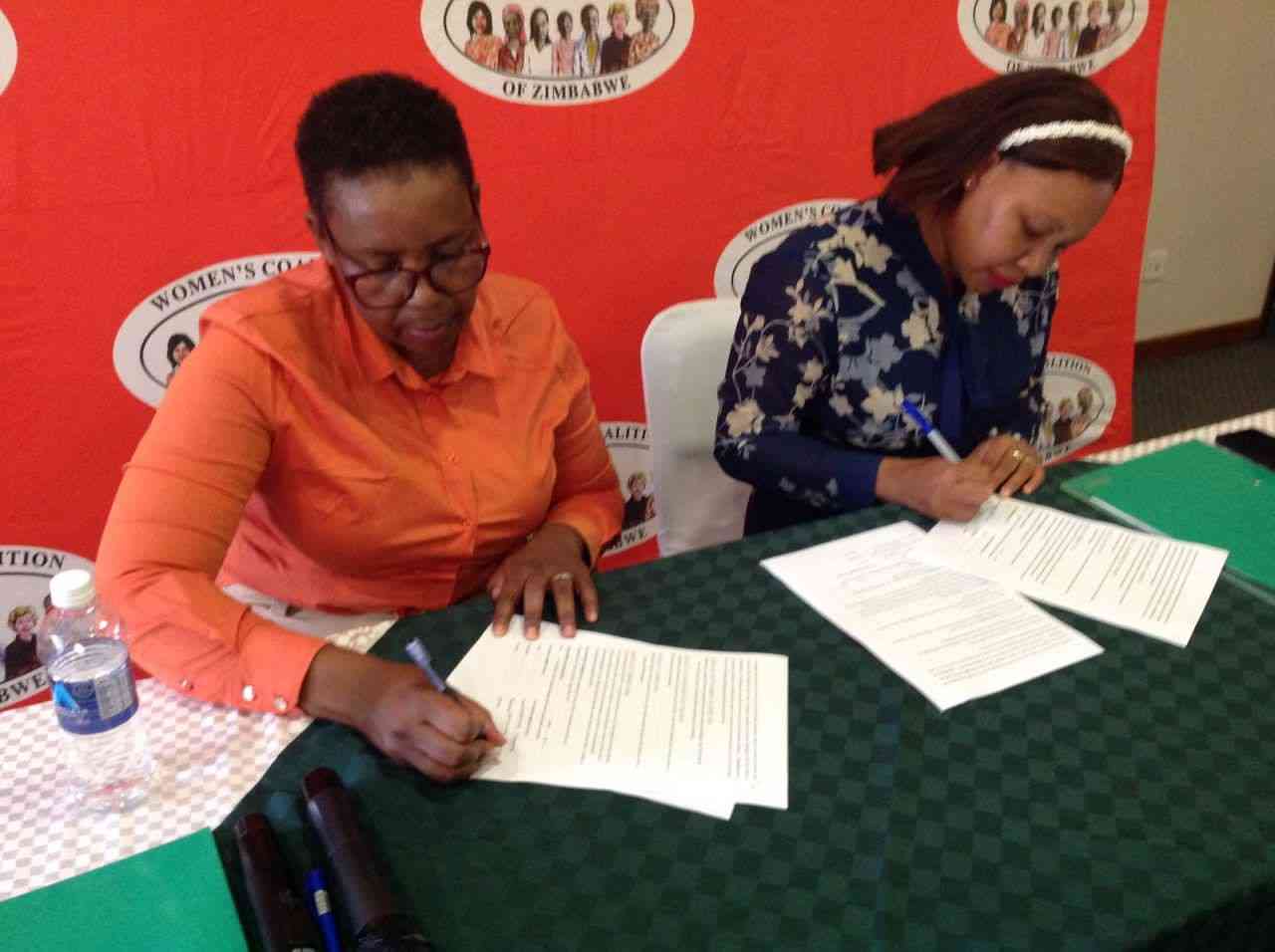
WOMEN’S Coalition of Zimbabwe (WCoZ) and the Zimbabwe Chamber of Informal Economy Associations (ZCIEA) have renewed calls for formalisation of the informal sector economy, saying this will bring dignity to women who are the majority in this industry.
Due to the country’s unrelenting economic crisis, many people have flooded the informal sector to make ends meet.
Speaking at the signing ceremony of a memorandum of understanding between WCoZ and ZCIEA in Harare on Thursday, ZCIEA president Lorraine Ndlovu said women and girls in the informal sector were not being respected.
“The women and girls in the informal sector do not enjoy their rights. They have no rights to speak of. When the local authority looks at them, the by-laws declare that street vendors are a public nuisance and should be arrested,” Ndlovu said.
She deplored harassment and criminalisation of informal workers whose contributions are critical to families’ livelihood.
“Goods are confiscated everyday and those goods come from these women. They are running around and hustling to put food on the table, take children to school, keep people away from criminality, at the same time shielding the government from being seen as a government of poor people,” she said.
WCoZ national co-ordinator Fadzai Traquino said women in the informal economy suffered neglect despite their contribution to the economy.
"Women in Zimbabwe are largely concentrated in the informal economy and communal sector. Over the years, they have received inadequate assistance that is necessary for growth and development, yet we know that the backbone of most households in communities in the country has been held by women.
- Reconsider ban on vendors operating in towns
- Fresh calls for informal sector formalisation
Keep Reading
“This is the reason why WCoZ and ZCIEA find themselves relevant in a country like Zimbabwe because this is a story and lived realities of many majority women,” she said.
Traquino further indicated that the majority of women remain in low profit sectors of unorganised vending, unorganised retail trade characterised by violence, low or erratic income and lack of social protection schemes such as pension.
She also noted that women had become susceptible to diseases due to poor working conditions in the informal sector.
“We also noted through various research that health problems affect women in economic participation,” Traquino said.
“Results of these health problems are really to do with the way women’s working conditions ... the informal sector is characterised by poor lighting, long hours, poor water and sanitation, poor workspace design and overcrowding.”
The informal sector in Zimbabwe has been hard hit by hostile responses from local authorities, police and political interference.










